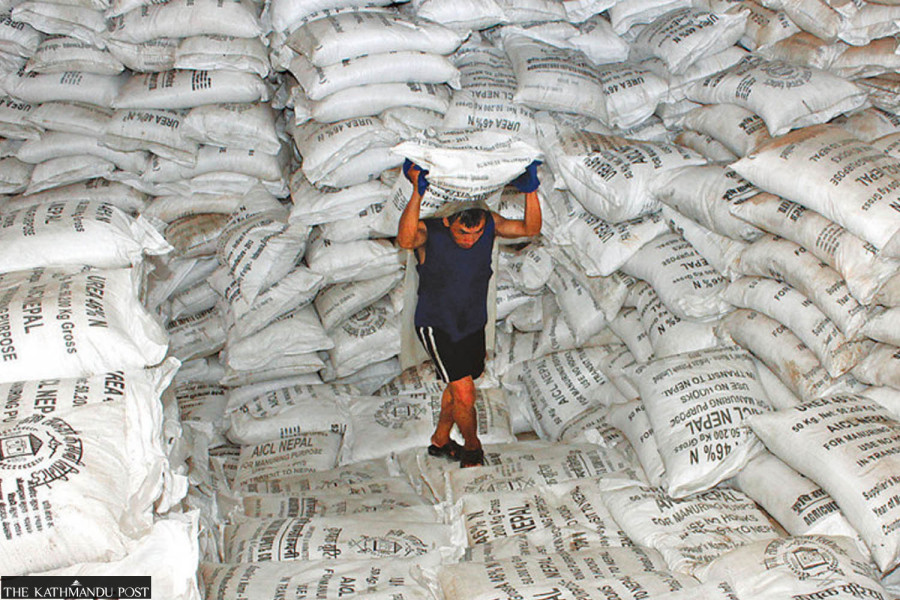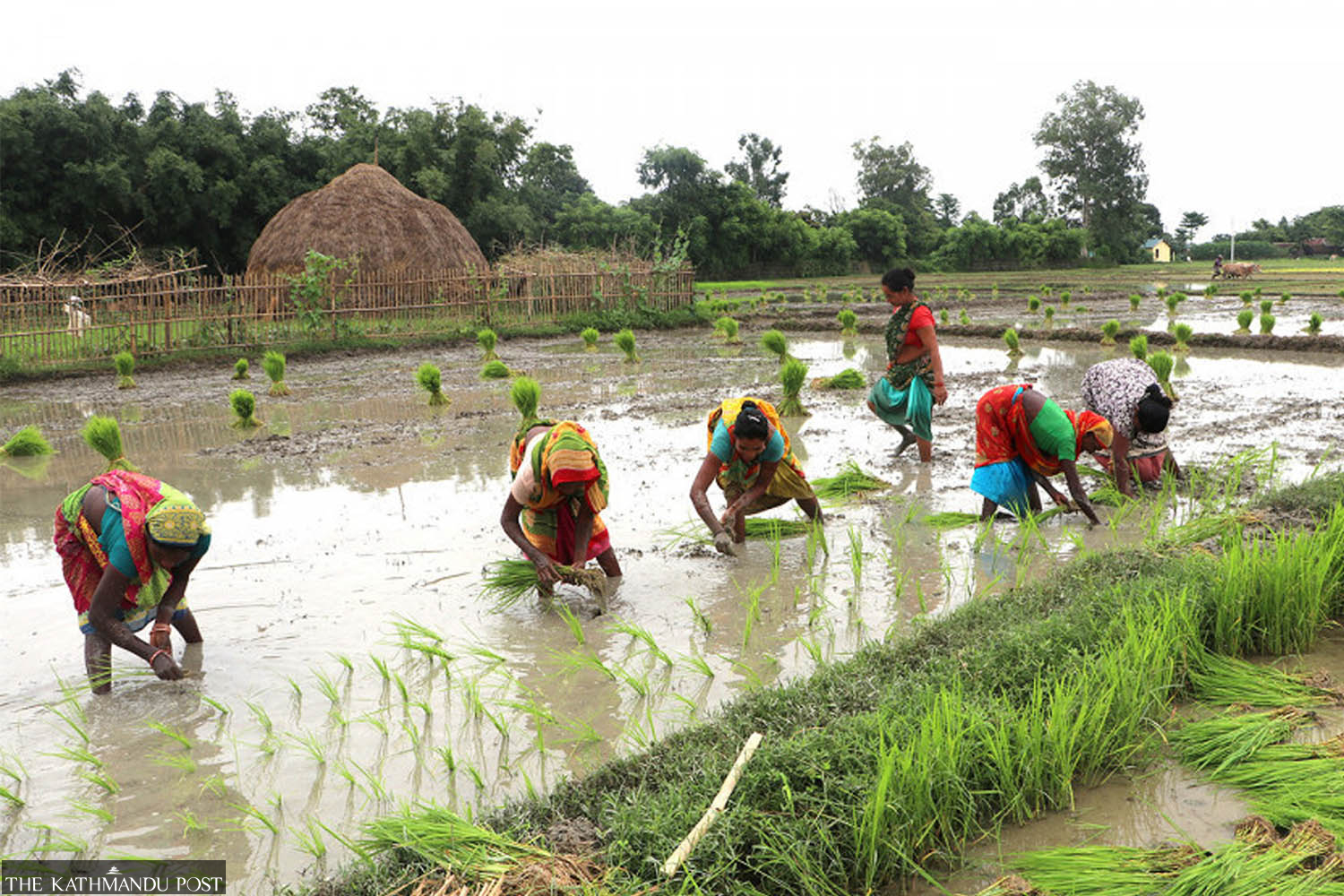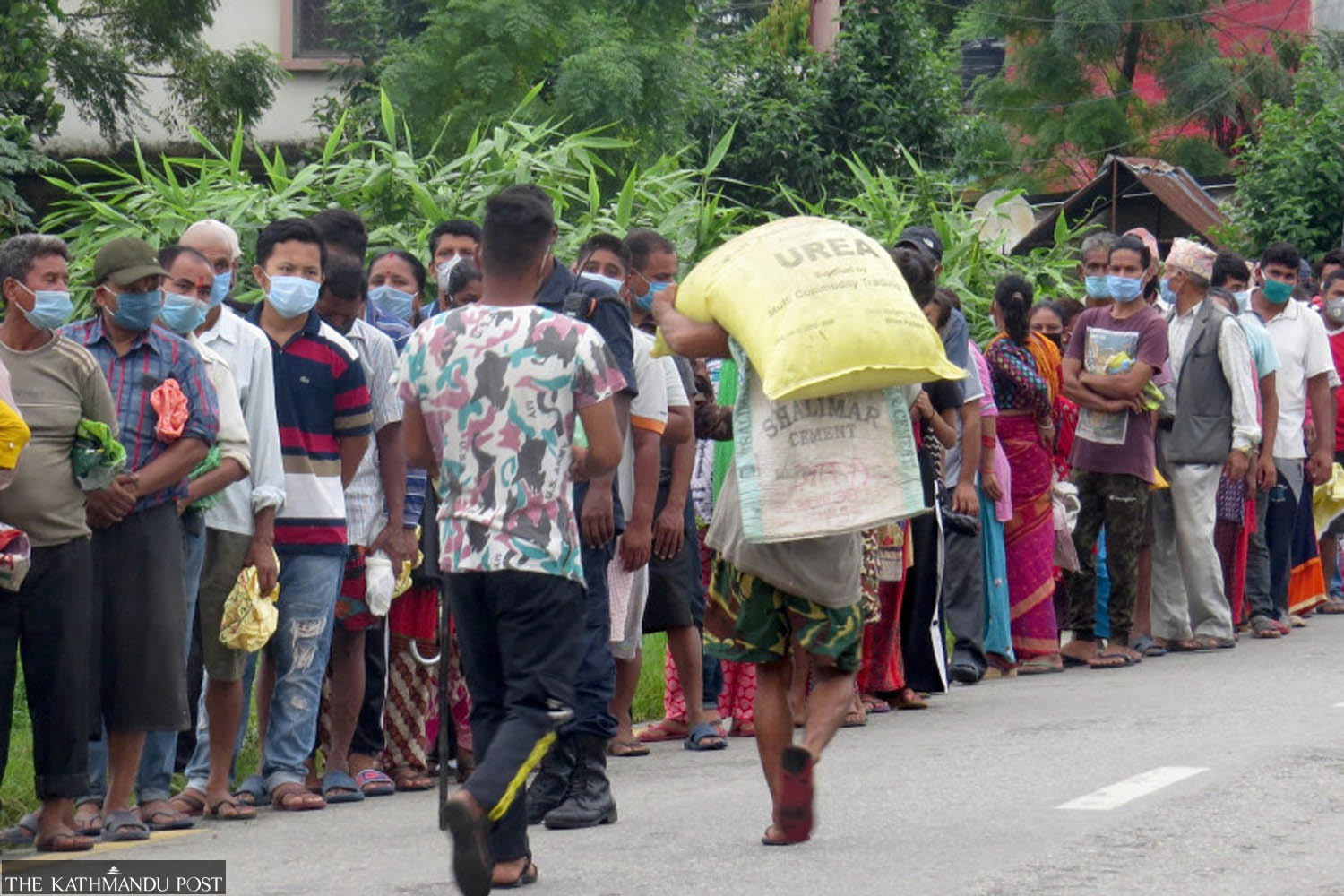National
Nepal clears hurdles to import fertiliser from India to tide it over paddy season
To fast-track the process, the Cabinet has opened the way for a rush shipment of vital crop nutrients, officials say.
Sangam Prasain & Anil Giri
Nepal is fast-tracking the import of chemical fertilisers from India through a government-to-government deal as the country faces one of its worst fertiliser crises ahead of the paddy growing season.
The cabinet has cleared a bunch of legal hurdles to facilitate a rush shipment of urgently needed crop nutrients, allowing Agriculture Inputs Company to make full advance payment to the Indian supplier designated by New Delhi, the Agriculture Ministry said on Tuesday.
The cabinet has also permitted the state-owned company to accept certificates of quality and other paperwork issued by the Indian government at the port of discharge where the cargo will be unloaded.
Nepali officials are keenly hoping that the farm inputs will arrive by mid-July, forestalling a shortage with the paddy transplantation season already underway.
But until the consignment reaches Nepal, we should not be optimistic, they say.
While farmers in the hills have started to transplant paddy, Tarai farmers are beginning to sow the seeds as monsoon clouds entered Nepal from the east on Sunday, eight days before the usual date, according to weathermen.
"Although Nepal has signed a memorandum of understanding with India for the supply 150,000 tonnes of chemical fertiliser through a government-to-government deal, the southern neighbour will be dispatching 50,000 tonnes of urea and 30,000 tonnes of DAP as a crisis mitigating measure by mid-July," said Prakash Kumar Sanjel, spokesperson for the Agriculture Ministry.
India has agreed to send the said amount from its stock.
“The cabinet has approved making full payment to India’s state-owned company,” said Sanjel.
Rashtriya Chemicals and Fertilisers is the designated company to supply chemical fertiliser to Nepal.
Under Nepal’s public procurement law, only 20 percent of the advance payment can be made to the seller.
The prices of fertilisers will be fixed after a commercial agreement is signed between the Indian company and the Agriculture Inputs Company.

According to Sanjel, after the amendment to the public procurement law, the Agriculture Inputs Company needs to formally place an order for the product.
“After the order has been placed, Nepal needs to send the full payment within four days,” he said, adding that looking at the current development and timetable, the fertiliser consignment will arrive by mid-July.
The ministry said delivery would be spread over several days as good transportation service and large warehouses will be required to handle the entire consignment.
The Indian company will start dispatching the goods two weeks after it receives payment, according to officials.
Nepal requires 210,000 tonnes of chemical fertilisers for the paddy planting season, and it must have 150,000-170,000 tonnes to avoid a disaster. The paddy transplantation season runs from early June to August. If the monsoon is delayed, the transplantation period extends to September.
The DAP requirement for the paddy season is 60,000 tonnes. The ministry says there is no shortage of DAP this season. But urea stocks have almost run out.
The shortage of chemical fertiliser, a political commodity, has become a headache for the government ahead of the general elections scheduled for later this year.
According to the Nepal Embassy in India, Agriculture Minister Mahendra Raya Yadav met with Mansukh Mandaviya, Minister of Chemical and Fertilisers of India, in New Delhi on Monday afternoon, and requested an early supply of fertilisers, highlighting its urgency in Nepal.
The Indian minister assured Yadav that the fertiliser shipment would be sent to Nepal as soon as possible.
Prime Minister Sher Bahadur Deuba had assured the agriculture minister of full cooperation and support from the government to import fertiliser through the government-to-government arrangement, according to Health Minister Birodh Khatiwada told the Post.
Nepal’s Ambassador to India, Shankar Sharma, who was present at the meeting, told the Post over the phone from New Delhi that Indian Minister Mandaviya has instructed officials to send to Nepal whatever stock of fertiliser they have due to the pressing situation in Nepal.
“Since we are buying the fertiliser under a government-to-government scheme, issues like mode of payment, logistics and method of transportation to Nepal remain our responsibility. The Indian minister and officials have assured us that they will provide transport through the Indian Railways,” said Sharma.
Apart from the supply expected from India, the Agriculture Ministry said that Salt Trading Corporation, which is authorised to handle 30 percent of the total fertiliser business, had purchased 20,000 tonnes of DAP.
The corporation has 22,000 tonnes of urea on order which will enter the country by mid-June.
Agriculture Inputs Company, which has a 70 percent share of the fertiliser business, will import 20,000 tonnes of urea by early July and 40,000 tonnes of DAP by mid-July, according to a statement issued by the ministry on Tuesday.
All countries globally, including India, have been struggling to secure chemical fertilisers since last year following a price hike in petroleum products. The Russia-Ukraine war has worsened fertiliser availability with prices going up nearly six times since the fighting began.
The World Bank and other global agencies have warned that poor countries may face food shortages because they can’t access expensive chemical fertilisers.
Over the coming months, a major challenge will be accessing fertilisers, which may impact food production across many crops in different regions, according to the World Bank’s May report on food security.

The Agriculture Ministry said that following massive price fluctuations, suppliers defaulted on dispatching around 222,000 tonnes of fertiliser planned for this fiscal year ending mid-July, leading to shortages.
On February 28, Nepal signed a government-to-government deal with India to procure chemical fertilisers for five years, raising hopes that the constant nightmare of shortages during the planting season would finally end for Nepali farmers.
As per the deal, Nepal can buy 150,000 tonnes of crop nutrients—100,000 tonnes of urea and 50,000 tonnes of DAP—from the southern neighbour in the first year, which means the ongoing fiscal year 2021-22.
In the second year, Nepal will be able to procure 170,000 tonnes, in the third year 195,000 tonnes, and in the fourth and fifth years, 210,000 tonnes each.
The government-to-government contract bypasses the lengthy global tendering process to avoid scarcities during the main growing season. Normally, it takes six months to import chemical fertiliser through the global tendering process.
The ministry said it takes 226 days for fertiliser to reach Nepal through the global tender process.
The deal, however, will assure the supply of at least 30 percent of Nepal's annual fertiliser requirement, officials said.
The Ministry of Agriculture and Livestock Development has estimated that the annual demand for fertilisers stands at around 600,000 tonnes.
According to the ministry, the price of urea in February-March, the main procurement or tendering period, had reached Rs139 per kg while the price of DAP jumped as high as Rs168 per kg.
The price of urea has dropped to Rs98 and DAP to Rs150 per kg. The government sells urea and DAP at the subsidised prices of Rs15 per kg and Rs44 per kg respectively.




 19.12°C Kathmandu
19.12°C Kathmandu















